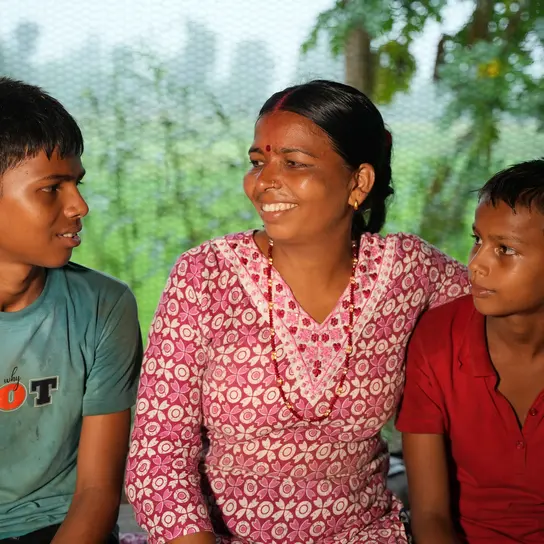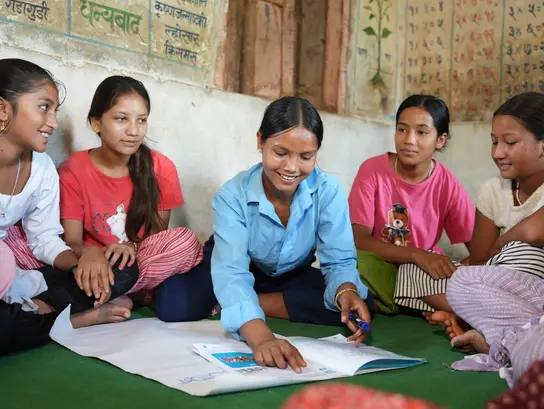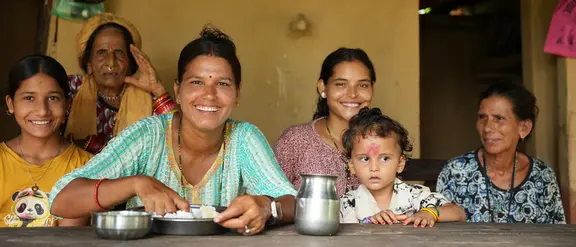Nepal: Help and protection from violence for girls and women living in poverty
Early marriage, dependency, and being trapped in a system of oppression – for many girls in Karnali, Nepal, their fate seems predetermined. Those who grow up here often have little chance of determining their own lives.
- In Karnali, girls marry at an average age of 17.8 years .
- One in four women experiences physical or sexual violence.
- 27 percent of women are illiterate – compared to only 7 percent of men. (Source: Demographic and Health Survey of the Ministry of Health and Population, Nepal 2022)
Karnali province, located in northwestern Nepal, is one of the country's poorest. It lacks industry and fertile land is scarce. To earn money and support their families, most people work as day laborers in India. Those who remain behind are mostly women. To survive, they perform backbreaking labor in the fields, some of them heavily pregnant or freshly born.
They remain dependent on their husbands' income and trapped in a system of oppression. Violence, abuse, and sexual assault are part of everyday life for many. Driven by economic hardship, many girls are married off as teenagers – some as young as 14. For these women and girls, their future seems predetermined, and any opportunity for education and self-determination is denied them. A cycle of poverty, violence, and dependency begins, from which few escape.
Aawaaj breaks the silence
Terre Terre des Hommes partner organization Aawaaj aims to break this cycle. It supports girls and women who have experienced violence and gives them the chance to rebuild their lives. Like Sita, who fled home at 13, experienced violence – and today, thanks to Aawaaj, is back in school; or Basundhara, who was once a victim of domestic violence and now, as a spokesperson for a women's group, encourages others:

“I believed I had no future. But Aawaaj helped me to protect myself, heal, and develop new skills. Today I live with confidence and dignity.”

With the support of Terre des Hommes Aawaaj offers very concrete help:
- Financial support for women in need
- Local contact persons and a telephone hotline
- Safe spaces for victims of domestic violence
Furthermore, the organization is working on long-term changes:
- Raising awareness among police and the judiciary
- Educational work in communities
- Commitment to equitable healthcare
- Education and training programs for girls
Read our project report on Nepal in our Terre des Hommes magazine:
Download the magazine now